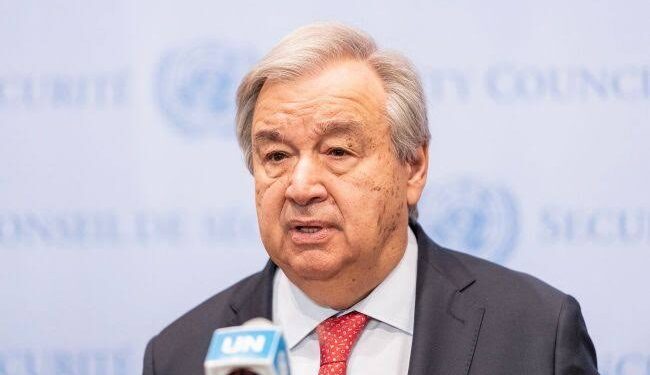In a landmark development, the regime of Syrian President Bashar al-Assad has fallen after 14 years of brutal conflict. The overthrow of the “dictatorial regime” was confirmed on Sunday, December 8, 2024, as opposition forces took control of Damascus, marking the end of an era of authoritarian rule. UN Secretary-General António Guterres hailed the development as a “historic opportunity” for Syrians to rebuild their nation.
“Today, the people of Syria can seize a historic opportunity to build a stable and peaceful future,” said Guterres in a statement.
Opposition Forces Capture Damascus
The fall of Assad’s regime followed a rapid military campaign by opposition forces, including Hayat Tahrir al-Sham (HTS), who swept through key cities like Aleppo, Hama, and Homs before capturing Damascus. Reports suggest little resistance was encountered as the rebels entered the capital. State television broadcast an opposition victory declaration, while Assad reportedly fled to an undisclosed location amid speculation of his whereabouts.
Call for Political Transition and Reconciliation
UN Special Envoy Geir Pedersen emphasized the urgent need for political talks to ensure a stable transition. Speaking from a high-level meeting in Doha, he said:
“This dark chapter has left deep scars, but today we look forward with cautious hope to the opening of a new one – one of peace, reconciliation, dignity, and inclusion for all Syrians.”
Pedersen urged the new leadership to protect Syria’s institutions, restore sovereignty, and meet the aspirations of its diverse population. Arab states and international powers, including Russia, Turkey, and the United States, have expressed support for UN-led efforts to facilitate an inclusive political solution based on Security Council Resolution 2254.
Humanitarian Crisis Persists
While the political landscape shifts, Syria faces a worsening humanitarian crisis. Over 370,000 people have been displaced during the recent hostilities, with many trapped in frontline areas or fleeing to the northeast. Adam Abdelmoula, the UN’s top aid official in Syria, reported rising civilian casualties and urgent humanitarian needs.
“The UN will respond wherever, whenever, however we can to support people in need, including food, water, tents, and blankets,” said Tom Fletcher, head of the UN aid coordination office.
Concerns Over Chemical Weapons and Human Rights
US intelligence has raised concerns about chemical weapons stockpiles allegedly retained by Assad’s forces. Monitoring efforts are underway to prevent their use against civilians. Meanwhile, human rights organizations are urging access to detention facilities like Sednaya, notorious for torture and abuse under Assad’s regime.
International Appeals for Stability and Peace
The UN, along with regional powers, has called for calm during this critical transition. Guterres emphasized:
“Syria’s sovereignty, unity, independence, and territorial integrity must be restored. The international community must support an inclusive political transition to secure a peaceful future.”
The Secretary-General reaffirmed the UN’s commitment to honoring the memory of conflict victims while helping Syrians rebuild their nation.
Path Ahead for Syria
As Syria enters this new chapter, the focus remains on dialogue, humanitarian aid, and ensuring that the deeds of the new leadership align with their promises. The path forward will require sustained international cooperation and commitment to building a nation rooted in justice, reconciliation, and freedom for all its people.
This moment marks a pivotal turning point in Syria’s history, offering a glimmer of hope after years of relentless suffering. The world now watches as Syrians strive to turn this hope into lasting peace and prosperity.
Related Stories:
Assad regime collapses as Syrian rebels seize control of Damascus
Israeli Tanks Cross Syria Border Fence for First Time in 50 Years
Who are the Syrian rebels who have captured Damascus
Turkiye, Russia, Iran meet in Doha to seek solution to renewed Syria crisis
















